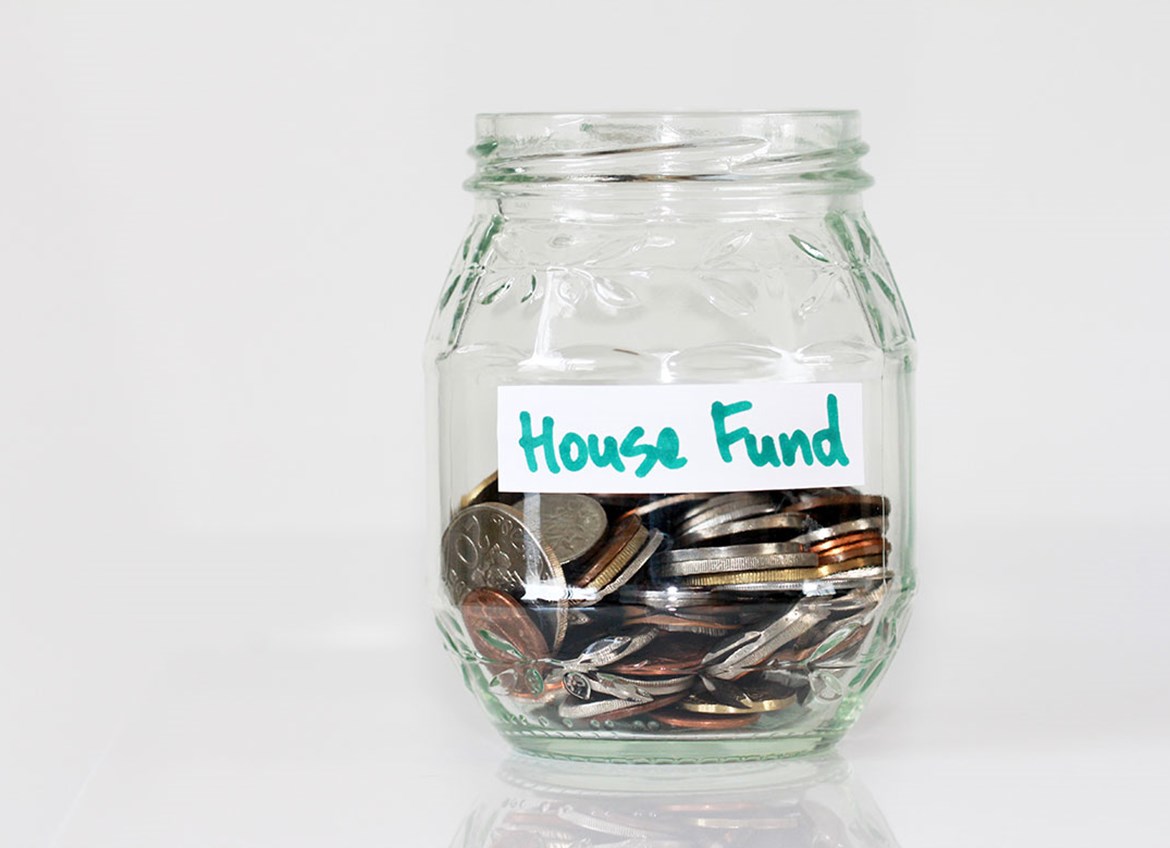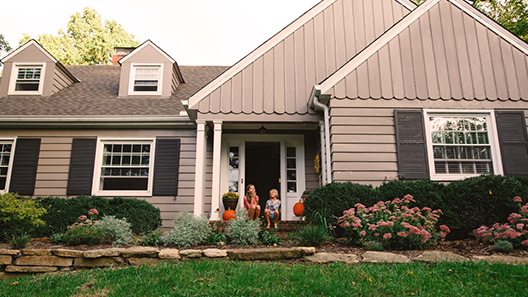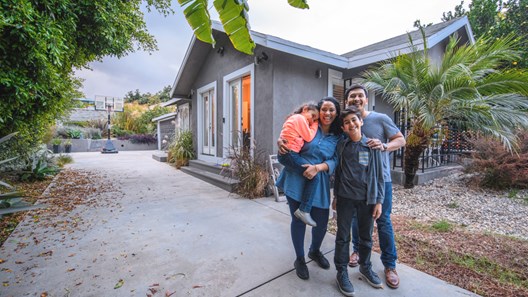Introducing Purchase Perks! Save $1,000 on closing costs when you purchase with us.
Whether you're looking for a new home, refinance your existing property, or get cash from your home's equity, we've got customized loans for your needs. Talk to a loan officer today.
Thinking about making the step from renter to homeowner? Owning a home has so many financial benefits compared to renting, so pat yourself on the back for even considering the move - it’s a big step!

Purchasing a home is totally doable, it just requires some financial planning and preparation. In a recent survey from Cultural Outreach, most NextGen (both millennial and Gen Z demographics) first-time homebuyers state the down payment as their biggest financial hurdle.[1] Coming up with a large chunk of cash to put down can be intimidating and feel overwhelming. But starting is sometimes the most difficult part of any journey, saving money included!
Here are some easy, digestible tips to help you get started on your savings journey, whether you’re saving for a down payment, emergency fund, retirement, or anything else!
Before you start thinking about a down payment, make sure that you have a healthy financial profile. That means eliminating bad debt (think credit cards) and having an emergency fund of 3-6 months worth of expenses saved up first. You want to feel comfortable with your finances when you start to make the plunge into homeownership. And freeing yourself of debt and having the financial security of an emergency fund will help you get there. This way you won’t feel extra stress as you start to save for a down payment, you’ll already have developed good financial habits!
Create a Budget!
First thing’s first, you’ll take a good, hard look at your monthly expenses and start budgeting if you’re not already. You can’t make money come out of thin air, but you can take money from other places and reallocate it to a down payment fund.
Start by eliminating any unnecessary or unnecessary for right now expenses. Remember, this isn’t forever! And with the social limitations of the shelter in place ordinances time we’re living in, you’re probably spending less these days anyway!
Think about things like:
-
Eliminating a gym membership: $60/month
-
Not eating out for special occasions: $200/month
-
Trim your clothing budget: $100/month
-
Buy generic brands at the store: $150/month
That’s already $510 each month that you could be saving towards a down payment! That’s over $12,000 across two years! Take a look at our 20% Down Myth article to see what down payment options are available. You can think even bigger and save thousands of dollars by opting out of the summer vacation this year. Now let’s get creative and think of even more ways to save.
Amend your retirement plan (just temporarily)
It may seem scary to think of stopping saving for retirement. And you don’t need to completely stop putting money in your retirement account. But, depending on your monthly income, put that money in a down payment savings account or reduce your monthly retirement savings in favor of down payment savings. This, too, is only temporary! Saving for a down payment can only take a couple of years. And when you’re drinking a glass of wine in your new digs, you can go right back to putting that money into your retirement account and kick your feet up.
A note. We do not recommend borrowing from or cashing out your retirement account. That can have negative effects on your taxes and incur withdrawal penalties.
Save Today For A Better Tomorrow!
Sell your stuff
Do you have a lot of extra things collecting dust and taking up space at your current home? Now’s the time to do a bit of streamlining that will eliminate clutter and put some extra cash in your pocket.
Save your bonuses & raises
Do you receive an end-of-year bonus? Put that money directly into your down payment savings account for a nice little bump of cash! If you get an annual pay raise (normally 3%), take that extra padding and create an auto-payment directly into your down payment savings account. That’s money that you won’t even feel like it’s missing because it’s not taking away from your baseline income and could add up to thousands of dollars each year!
So where should you be putting all this money? The down payment itself isn’t an investment, per se, so putting your down payment savings into a money market savings account with a good APY (annual percent yield) will do the trick. You’ll earn a bit of interest, but the money will be secure and accessible. Crunch some numbers or talk to a financial advisor or real estate professional to set a goal for yourself and create a plan (Use our Mortgage Calculator Tool to figure out how much house you can afford). Maybe you want to save $40,000 over 24 months to cover your down payment. Whatever you save will earn a little bit of interest and you’ll have even more when you’re ready to buy a home!
Whenever it feels overwhelming, check out some personal finance motivation online, listen to a finance podcast, and remember, there are lots of people out there on the same journey as you. Stay inspired and motivated, but also give yourself some grace through this (and check out our article on first-time homebuyer fears and how to conquer them for more tips). With some planning, budgeting, and goal setting, you’ll be well on your way to saving that down payment and purchasing a home!
[1] 2020 NextGen Homebuyer Report, Cultural Outreach
Learn more in our other educational series.
We’ve assembled a treasure trove of jargon-free information to demystify home-financing and arm you with valuable insights and actionable options.
Browse our complete library of resourcesWhy Newrez?
Newrez believes the lending business shouldn't just be about home loans - it should be about homeowners. That's why our employees get to know our customer's real needs, through final closing, and beyond.
-
Industry leading loan options
-
Simple pre-qualifications and application processes
-
Loans for everyone, from seasoned investors to first-time buyers
-
Putting power back into underserved communities



